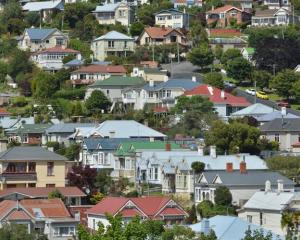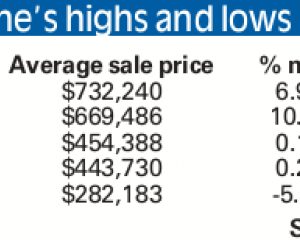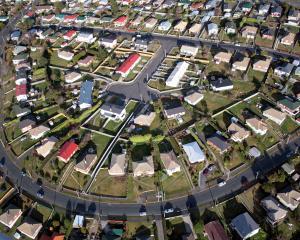Property managers in Dunedin say the rental market is being affected by a number of factors, including short supplies, a large number of domestic students and rising rents.
Dunedin Property Management owner Rueben Skipper said there was a supply issue in Dunedin.
Large domestic student numbers had an impact across the rental market.
"I’ve already had students messaging us looking for rentals in 2023," he said.
This was now the third year ofhigh domestic student registrations because of the Covid-19 pandemic, he said.
"That creates a cohort bubble that goes up."
In the first year, a student might be in a residential college, and in the second and third year, they would rent.
If they could not find a flat near the university, they would begin to look further afield, taking up flats that might normally be available for the local population.
"Students are good tenants. Students in Dunedin generally, they actually have money, there is this idea that they are poor, it is not, they pay good rents, they want good places."
That put pressure on the rest of the market, Mr Skipper said.
Nidd Realty managing director Rachael Courtney said there had been a slight increase in rents on the properties they managed
and they were being snapped up earlier.
In February the average number of days from listing to renting a property was 17, compared to 24 days in February last year.
In March this year it took 27 days to rent versus 44 days in 2021, and in 2020 it took 50 days to rent, she said.
"It is interesting just seeing that decrease."
Click Property Management managing director Andrea Elliott said an example of the change in rental prices could be seen in an average South Dunedin family home they had managed for a number of years.
In 2015 it was rented for $290 a week, by 2019 that had risen to $365 and it was now being rented for $490 a week.
"And that is just a typical three bed, one bath house, tidy, nothing ritzy."
Some rental increases were due to rising demand due to lack of supply, as well as increased costs for property owners including healthy homes compliance costs and rates increases, she said.
Information from TradeMe’s February 2022 rental price index showed advertised rents for the Otago region had climbed 7.6% since February 2021.
Trade Me Property Sales Director Gavin Lloyd said all house sizes saw an increase in median weekly rent when compared to the year prior.
Wellington economics consultancy Infometrics has a rental affordability index which compares average weekly rents with average weekly housing income. Their information for 2021 shows New Zealand has a ratio of 21.5% and Dunedin has a ratio of 27.2%.
A higher ratio suggests average rents cost a greater multiple of the typical income, indicating a lower rental affordability for Dunedin compared to the country as a whole — higher than Auckland at 20.8% and Wellington at 19.2%.











